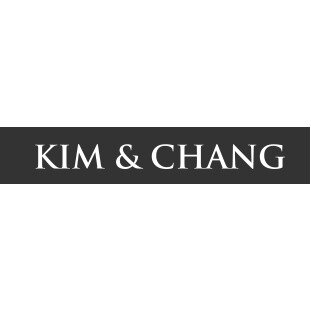Best Bankruptcy & Debt Lawyers in Jongno-gu
Share your needs with us, get contacted by law firms.
Free. Takes 2 min.
List of the best lawyers in Jongno-gu, South Korea
About Bankruptcy & Debt Law in Jongno-gu, South Korea
Bankruptcy and debt law in Jongno-gu, South Korea, is designed to provide solutions for individuals and businesses facing financial difficulties. Situated in the heart of Seoul, Jongno-gu is not only a historical and cultural hub but also an area with active financial and legal services. Here, the law offers mechanisms for debt restructuring, business recovery, and consumer protection through bankruptcy procedures. The system aims to balance the interests of debtors and creditors while ensuring a fair and efficient resolution of insolvency issues.
Why You May Need a Lawyer
There are several situations where someone might need legal assistance in bankruptcy and debt matters. If you are overwhelmed by debt and unable to meet financial obligations, a lawyer can help you understand your options, such as filing for personal bankruptcy or negotiating with creditors. Business owners facing insolvency can benefit from legal guidance on restructuring debts or declaring business bankruptcy. Additionally, if you face harassment from creditors or require assistance understanding complex debt-related contracts, a lawyer can protect your rights and provide clarity.
Local Laws Overview
In Jongno-gu, like the rest of South Korea, bankruptcy and debt are governed by the Debtor Rehabilitation and Bankruptcy Act. This law includes provisions for individual and corporate bankruptcy. Key aspects include:
- Personal Bankruptcy: Available for individuals unable to repay their debts, allowing for discharge of liabilities.
- Corporate Rehabilitation: Designed for companies aiming to restructure and continue operations while satisfying creditor claims.
- Liquidation and Distribution: In cases where rehabilitation is not an option, assets are liquidated to pay creditors.
- Creditor Protection: Laws exist to prevent unfair debt recovery practices and ensure fair treatment of all parties.
Frequently Asked Questions
What are the different types of bankruptcy available in South Korea?
There are two primary types: personal bankruptcy for individuals and corporate rehabilitation or liquidation for businesses.
How does personal bankruptcy work?
Personal bankruptcy allows individuals to discharge their debts by submitting their assets for distribution to creditors, subject to court approval.
Can businesses continue operating during bankruptcy proceedings?
Yes, under corporate rehabilitation, businesses can continue operating while restructuring their debts with court and creditor approval.
What are the consequences of declaring bankruptcy?
Consequences may include a negative credit impact, asset liquidation, and potential restrictions on future business activities, but it also provides a fresh financial start.
Are all debts dischargeable in bankruptcy?
No, certain debts like child support, alimony, and some taxes may not be discharged.
How long does the bankruptcy process take?
The duration varies. Personal bankruptcy can take several months, while corporate rehabilitation can extend for years depending on the complexity.
What protections are there against creditor harassment?
Once bankruptcy proceedings are initiated, an automatic stay is placed, preventing creditors from collection activities.
Can foreigners file for bankruptcy in South Korea?
Yes, foreigners can file for bankruptcy if they are legally residing in South Korea and meet the conditions set by the law.
Is debt counseling mandatory before filing for bankruptcy?
While not mandatory, debt counseling can provide valuable insights and potentially alternative solutions to filing for bankruptcy.
Can bankruptcy filings be made online?
No, bankruptcy petitions must be filed in person at the competent district court with the necessary documentation.
Additional Resources
For further assistance, consider reaching out to these resources:
- Korean Legal Aid Corporation (KLAC): Provides free legal counseling for individuals facing financial difficulties.
- Ministry of Justice: Offers information on current laws and legal procedures.
- Bankruptcy courts in Seoul: Visit the Seoul Central District Court or other appropriate courts for direct filing and information.
- Financial Counseling Centers: Professional advisors can provide guidance on managing debts and financial planning.
Next Steps
If you require legal assistance with bankruptcy or debt issues in Jongno-gu, consider taking the following steps:
- Schedule a consultation with a qualified bankruptcy lawyer to discuss your situation and explore available options.
- Gather all relevant financial documentation, including account statements, debt agreements, and income proof, before meeting with a lawyer.
- Consider attending a debt counseling session for additional support and advice on managing your financial liabilities.
- Contact your local court to inquire about filing procedures if you decide to proceed with bankruptcy.
Lawzana helps you find the best lawyers and law firms in Jongno-gu through a curated and pre-screened list of qualified legal professionals. Our platform offers rankings and detailed profiles of attorneys and law firms, allowing you to compare based on practice areas, including Bankruptcy & Debt, experience, and client feedback.
Each profile includes a description of the firm's areas of practice, client reviews, team members and partners, year of establishment, spoken languages, office locations, contact information, social media presence, and any published articles or resources. Most firms on our platform speak English and are experienced in both local and international legal matters.
Get a quote from top-rated law firms in Jongno-gu, South Korea — quickly, securely, and without unnecessary hassle.
Disclaimer:
The information provided on this page is for general informational purposes only and does not constitute legal advice. While we strive to ensure the accuracy and relevance of the content, legal information may change over time, and interpretations of the law can vary. You should always consult with a qualified legal professional for advice specific to your situation.
We disclaim all liability for actions taken or not taken based on the content of this page. If you believe any information is incorrect or outdated, please contact us, and we will review and update it where appropriate.
Browse bankruptcy & debt law firms by service in Jongno-gu, South Korea
Jongno-gu, South Korea Attorneys in related practice areas.








